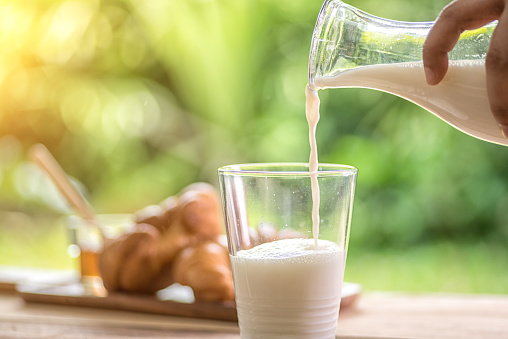Soy Milk vs. Cow's Milk and Oral Health
Posted on 3/3/2025 by Viva Smiles Family Dental Office |
 For many people, milk is a staple food. It provides essential nutrients like calcium and vitamin D, which are crucial for strong bones and teeth. However, cow's milk isn't the only option. Soy milk, made from soybeans, has become increasingly popular as a plant-based alternative. But how do these two types of milk stack up when it comes to oral health? For many people, milk is a staple food. It provides essential nutrients like calcium and vitamin D, which are crucial for strong bones and teeth. However, cow's milk isn't the only option. Soy milk, made from soybeans, has become increasingly popular as a plant-based alternative. But how do these two types of milk stack up when it comes to oral health?
Soy Milk: A Healthy Alternative
Soy milk is naturally lactose-free, making it a great choice for people with lactose intolerance. It's also lower in saturated fat and cholesterol compared to cow's milk. Additionally, soy milk is fortified with calcium and vitamin D, ensuring you get the same essential nutrients as cow's milk.
Soy milk also contains isoflavones, plant compounds with antioxidant and anti-inflammatory properties. These may help protect against gum disease and tooth decay. Some studies even suggest that soy milk can promote bone health, which is crucial for maintaining healthy teeth.
Cow's Milk: The Traditional Choice
Cow's milk has been a cornerstone of many diets for centuries. It remains a rich source of calcium, vitamin D, and protein, all essential for strong teeth and bones. Cow's milk also contains casein, a protein that may help protect teeth against erosion.
However, cow's milk is higher in saturated fat and cholesterol than soy milk. Additionally, some research suggests that cow's milk may contribute to increased dental plaque formation, a precursor to cavities.
Prevention Dentistry: The Key to Oral Health
Regardless of whether you choose soy milk or cow's milk, maintaining a good oral hygiene routine is critical for optimal oral health. This includes brushing your teeth twice daily with fluoride toothpaste, flossing daily, and visiting your dentist regularly for checkups and cleanings.
Following these preventive measures can help prevent cavities, gum disease, and other oral health problems regardless of your milk choice.
Making an Informed Choice
Ultimately, the best choice for your oral health depends on your individual needs and preferences. If you're lactose intolerant or prefer a lower-fat option, soy milk is a great alternative. However, cow's milk remains a valuable source of calcium and vitamin D for those who can tolerate it.
Discuss your dietary choices and any concerns about oral health with your dentist. They can help you determine the best approach to maintain a healthy and beautiful smile. Remember, prevention dentistry is key to avoiding oral health problems down the road.
|
|